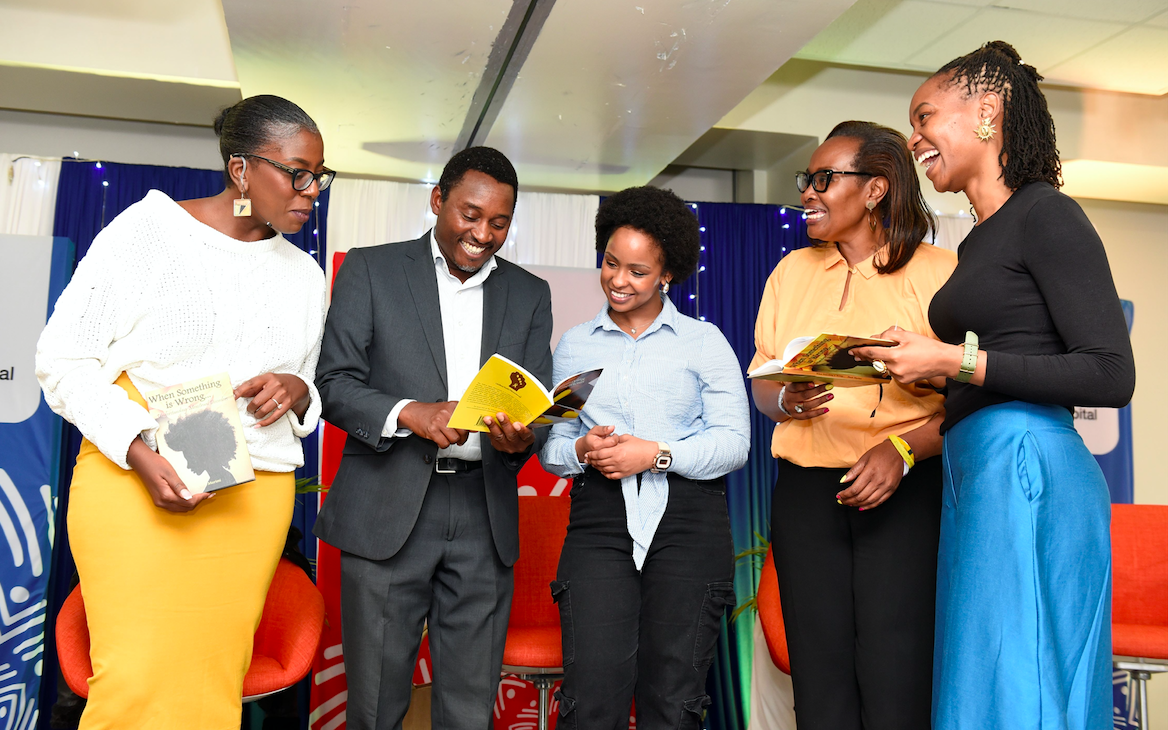 Ciru Muriuki, Aga Khan University Hospital consultant obstetrician gynaecologist and fertility specialist Dr Charles Muteshi, endometriosis survivors Keziah Mumbi and Doris Murimi, and consultant obstetrician gynaecologist Dr Joan Okemo at the meeting at Aga Khan Hospital.
Ciru Muriuki, Aga Khan University Hospital consultant obstetrician gynaecologist and fertility specialist Dr Charles Muteshi, endometriosis survivors Keziah Mumbi and Doris Murimi, and consultant obstetrician gynaecologist Dr Joan Okemo at the meeting at Aga Khan Hospital.Medical experts and endometriosis survivors are calling for increased awareness, early diagnosis, and comprehensive treatment of the condition, which affects millions of women globally.
Speaking at a recent panel discussion held at the Aga Khan University to mark the Endometriosis awareness month in Nairobi, leading specialists and endometriosis survivors shared insights on the challenges of managing endometriosis and the urgent need for policy reforms in Kenya’s healthcare system to address the growing menace.
According to World Health Organization, endometriosis is a chronic condition where tissue similar to the lining of the uterus grows outside the womb, causing severe pain, infertility, and other complications. However, because its symptoms mimic those of normal menstrual pain, many women suffer for years without a proper diagnosis.
Dr Charles Muteshi, an obstetrician gynecologist and fertility specialist said, “Endometriosis is often mistaken for normal period pain, leading to years of misdiagnosis. By the time many women receive the right diagnosis, their fertility and quality of life have already been significantly affected.”
The lack of awareness and training among healthcare providers further complicates the situation. Dr Joan Okemo, an obstetrician gynecologist, emphasised the importance of a multidisciplinary approach to treating the condition.
“Endometriosis requires more than just pain
management. Surgery, hormonal treatments, and lifestyle changes should all be
part of a comprehensive treatment plan, even though there is no known cure to
the condition, proper and targeted management practices have helped salvage the
situation in most patients who show up in hospitals and are diagnosed with the
condition,” she explained.
For women living with endometriosis, the journey to proper diagnosis and treatment is often frustrating. Keziah Mumbi, an endometriosis survivor, shared her personal struggle.
“I spent years moving from one doctor to another, being told it was just bad cramps. The pain was unbearable, but I was constantly dismissed. We need to educate not only women but also healthcare providers to recognize the symptoms early. Health care providers need to be urged to be both sympathetic and empathetic whenever patients show up in their hospitals and not just dismiss them based on the symptoms they show but go deep and diagnose properly,” she urged.
Echoing her sentiments, Doris Murimi, another endometriosis survivor and the founder of Endo Sisters East Africa Foundation, an advocacy group focusing on creating awareness on Endometriosis, called for more awareness and better support systems.
“Endometriosis is not just a women’s issue—it’s a public health issue. It affects our ability to work, emotional stability and live pain-free lives. We need policies that ensure better access to diagnosis and treatment,” she said.
She added, “One of the key challenges in managing endometriosis is the high cost of treatment. Many women cannot afford the necessary surgeries, medications and specialised care. I call upon the government to invest in research, subsidise treatment costs and include endometriosis care in national health insurance programmes [such as the Social Health Authority (SHA)].”
“With early detection and proper medical intervention, many women can reclaim their lives and avoid long-term complications,” Dr Okemo added.










